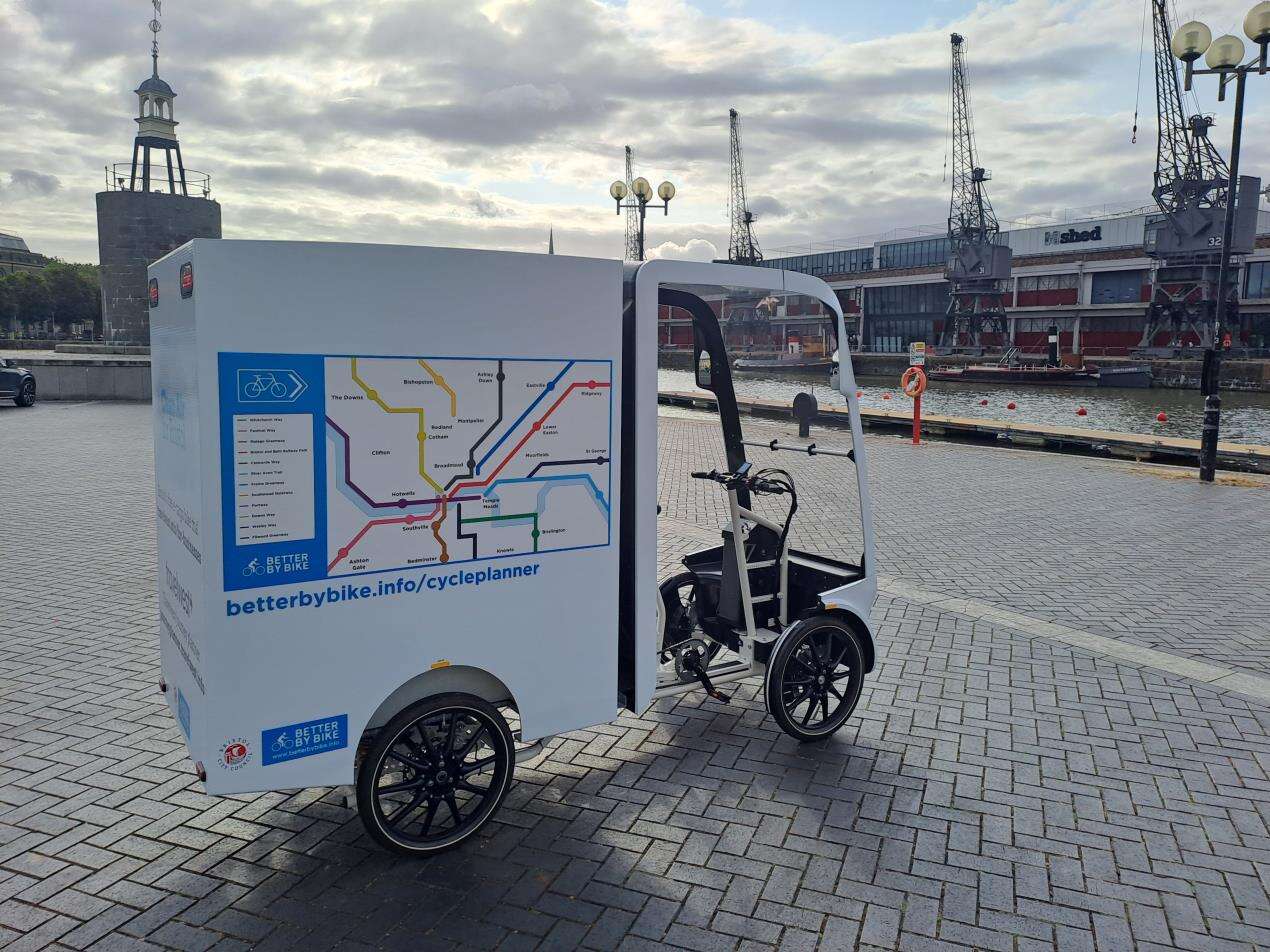
In a move to promote eco-friendly transportation alternatives, Bristol City Council has unveiled an initiative – the E-Cargo Bike Trial. This project encourages local businesses and organisations to embrace sustainable delivery methods and reduce their carbon footprint, aligning with the city’s commitment to cleaner, greener urban living.

E-cargo bikes offer a sustainable alternative to traditional petrol and diesel vehicles. Engineered to transport cargo with zero emissions, each e-cargo bike boasts a spacious storage area for goods and an electric motor to provide an extra boost to cyclists. The initiative’s primary goal is to introduce these eco-conscious options into the city’s transportation ecosystem while giving local enterprises a chance to explore their viability.
The E-Cargo Bike Trial is open to a wide array of participants, including sole traders, small and medium-sized enterprises (SMEs), charities and voluntary sector organisations operating within Bristol’s boundaries. The council seeks to present them with an opportunity to determine if e-cargo bikes are the right fit for their unique business needs.
Councillor Don Alexander, cabinet member for transport, expressed his enthusiasm for the initiative, saying, “I welcome the launch of this new scheme, which gives businesses and organisations the chance to try out an e-cargo bike. We all have a part to play in getting clean air for Bristol. The trial aims to raise awareness of e-cargo bikes and make a positive impact across the city by helping to reduce pollution caused by traffic, improve the city’s air quality, and cut congestion.”
E-cargo bikes in Bristol
This trial builds upon the success of Bristol’s free electric van loan scheme launched last year, which garnered significant interest and received praise from participating businesses.
The trial offers participants the opportunity to loan these eco-friendly vehicles for periods ranging from one to three months. Bristol City Council takes care of all the logistics, including providing accessories and maintenance. A small administrative fee and a refundable deposit of £200 are required to participate. To ensure safe operation, every organisation borrowing an e-cargo bike will receive two hours of free training, delivered by a knowledgeable Lifecycle bike instructor, covering the level 2 and 3 cycling courses.
The programme caters to a variety of needs, with different types of bikes available, including various styles, storage capacities and seating options.
Interested organisations can explore the full range of models and register their interest on the council’s website.
Although declaring a “climate emergency” four years ago, Bristol is set to miss its 2025 carbon-neutral target according to a recent report by the BBC.
[Read more: Bristol looks to be the UK’s e-scooter success story]






